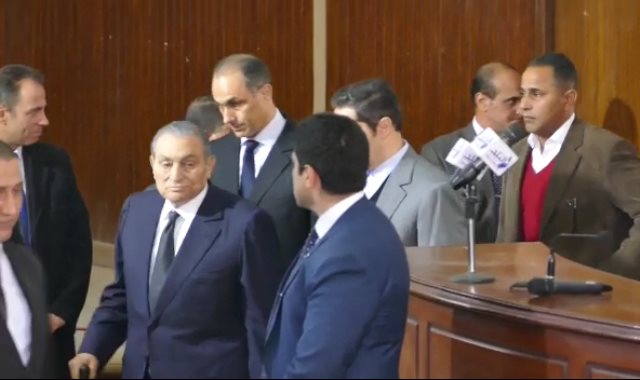In state-owned Al-Ahram, the five missiles that fell on Israel’s Eilat and Jordan’s Aqaba, causing the death of one Jordanian, top the headlines. Egyptian security sources ruled out the possibility of the rockets being launched from Sinai, even though the Jordanian Ministry of Interior says primary investigations have indicated the source of the missiles as being the Sinai Peninsula.
Opposition paper Al-Wafd reports one killed and four injured from the rockets falling on Aqaba, with no losses or injuries in Eilat. The newspaper quotes the governor of South Sinai as saying it would have been impossible for rockets to have been launched from Sinai because of the geography of the land there, which has insufficient plain areas.
Moshe Cohen, head of the Israeli police, meanwhile accused “active Jihadi groups” in Sinai of launching the rockets. Egypt however denies the presence of such groups, including Al-Qaeda, on Egyptian soil.
Al-Wafd also tops its front page with the latest ElBaradei tweets. The paper reports Mohamed ElBaradei, potential presidential contender, as saying, “the regime’s barricades are falling and its representatives and writers falling into disarray.” The report is based on three messages sent from ElBaradei’s Twitter account after twelve days of no updates. “My confidence in Egyptian youth is unlimited and their courage in facing challenges reveals their insistence on a better future. The fence of fear is dissolving… Our strength is our number,” said one of his tweets.
Al-Dostour, an independent paper, also reports on ElBaradei’s Twitter activity, adding that signatures to the statement “Together we will change” reached 470,000 yesterday. The statement includes seven demands, including a call for reform to guarantee transparent elections and to amend the presidential elections law, which is believed to favor the National Democratic Party candidate. The story also reports that of those who signed the statement, 88,000 signed through the National Association for Change website, and 354,000 through the Muslim Brotherhood hub, in addition to 28,000 hard-copy signatures.
Al-Dostour also sarcastically reports on Gamal Mubarak’s campaign to collect signatures for his candidacy. “Surprise… the number of signatures on the Facebook page to support Gamal Mubarak for president has reached only 50,” says the headline. The article reports that a group of hackers that cracked Gamal Mubarak’s Facebook page yesterday stated, “We’ve found only 50 people signing to support Gamal Mubarak to run for presidency in a campaign that… earlier claimed to have 16,000 signatures.”
In both state-owned Al-Gomhorriya and Rose el-Youssef newspapers, Gamal’s visit to Helwan University dominates the front page with large-font titles featuring his statements on everything from corruption, to the national income, to his opinion on Sadat. Al-Gomhorriya headlines with: “Gamal Mubarak: My conscience is clear in what I’m doing… and I’m continuing with the Party’s work.”
Details of Gamal’s visit are given two additional pages with color photos inside the paper. Rose el-Youssef, even more colorful, has a full picture of Gamal Mubarak on the front page in addition to a complete two-page report inside the edition. “Gamal Mubarak describes political work as a ‘battle’ and says public work is no ‘picnic,’” writes Abdullah Kamal, Rose el-Youssef’s editor-in-chief, who seems to have been assigned to cover the younger Mubarak’s interaction with around 300 youth from Helwan University.
Gamal, who’s the general secretary of the policy committee of the National Democratic Party–a position in the ruling party that is not part of the government–takes up more columnspace in public-owned press than his position would justify. The coverage of Mubarak Junior’s visit, however, reminds us of his father’s campaign to run for re-election in 2005, which commandeered an equal amout of space in state-owned press at the time.
Egypt’s papers:
Al-Ahram: Daily, state-run, largest distribution in Egypt
Al-Akhbar: Daily, state-run, second to Al-Ahram in institutional size
Al-Gomhorriya: Daily, state-run
Rose el-Youssef: Daily, state-run, close to the National Democratic Party’s Policies Secretariat
Al-Dostour: Daily, privately owned
Al-Shorouq: Daily, privately owned
Al-Wafd: Daily, published by the liberal Wafd Party
Al-Arabi: Weekly, published by the Arab Nasserist party
Youm7: Weekly, privately owned
Sawt el-Umma: Weekly, privately owned



